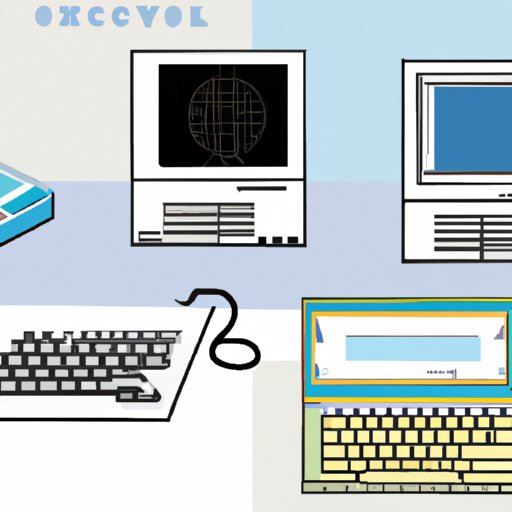Introduction
The world has changed drastically since the invention of the computer. The concept of a computer is defined as an electronic device capable of performing calculations and logical operations with great accuracy and speed. While computers have come a long way since their inception, it is important to look back at the history of the first computers and how they have shaped the world we live in today.

Historical Overview of the First Computers
The history of computers dates back to the early 19th century when the first mechanical computers were developed. These computers were created by various pioneers such as Charles Babbage, Ada Lovelace, and Herman Hollerith. Each of these pioneers contributed to the evolution of computers by making significant advancements in the design and development of early computers.
By the mid-20th century, computers had become more powerful and reliable. During this time period, the first digital computers were developed. These computers used vacuum tubes, transistors, and other technologies to operate and store data. In the late 20th century, computers began to use integrated circuits, which allowed for faster processing speeds and more efficient storage capabilities. By the 21st century, computers had become smaller, more powerful, and more accessible than ever before.
The following timeline outlines the major milestones in the evolution of computers from the early 19th century to the present:
- 1822- Charles Babbage develops the Difference Engine, the first mechanical computer.
- 1937- Konrad Zuse creates the Z1, the first programmable electromechanical computer.
- 1946- The ENIAC, one of the earliest digital computers, is developed by John Mauchly and J. Presper Eckert.
- 1959- The first integrated circuit is invented by Jack Kilby.
- 1971- The first commercial microprocessor is released by Intel.
- 1981- The IBM PC is launched.
- 1993- The World Wide Web is introduced.
- 2007- The iPhone is released.
- 2018- Quantum computing is made available to the public.
Impact of the First Computers on Society and Technology
The invention of the first computers changed the course of history. Through their development, computers revolutionized communication, transportation, entertainment, and many other aspects of modern life. The first computers enabled us to store, process, and share vast amounts of information quickly and efficiently. This ushered in a new era of computing power and efficiency that has greatly impacted the way we live today.
The first computers also paved the way for the development of modern technologies such as the internet, artificial intelligence, and robotics. These technologies have drastically changed the way we communicate, shop, work, and learn. In addition, the development of the first computers has enabled us to explore outer space, develop better medical treatments, and automate mundane tasks. The impact of the first computers can be felt in virtually every aspect of our lives today.

Uncovering the Mysteries of the First Computers and Their Inventions
The inventions of the first computers are shrouded in mystery. Despite the lack of historical records, there have been attempts to uncover the mysteries of these early machines. The most notable of these attempts is the work of Dr. Doron Swade, who spent decades researching the work of Charles Babbage and Ada Lovelace. His research revealed the incredible complexity and sophistication of the first computers, as well as the contributions of both pioneers.
In addition, researchers have uncovered the mysteries behind the first computers’ inventions. This includes the development of the first programming languages, operating systems, and graphical user interfaces. All of these discoveries shed light on the incredible advances made in computer science during the first half of the 20th century.
Conclusion
The invention of the first computers has drastically changed the way we live and interact with the world. By looking back at the history of the first computers, we can gain insight into the incredible advances made in the field of computer science. We can also uncover the mysteries behind the inventions of the first computers and understand their impact on society and technology. The first computers have truly revolutionized the modern world and will continue to do so in the future.
Implications for the Future
As technology continues to evolve, computers are becoming increasingly powerful and efficient. This opens up a world of possibilities for the future. As computer science continues to progress, we can expect to see further advancements in areas such as artificial intelligence, robotics, and virtual reality. These advancements will no doubt shape the future of humanity and the world we live in.


